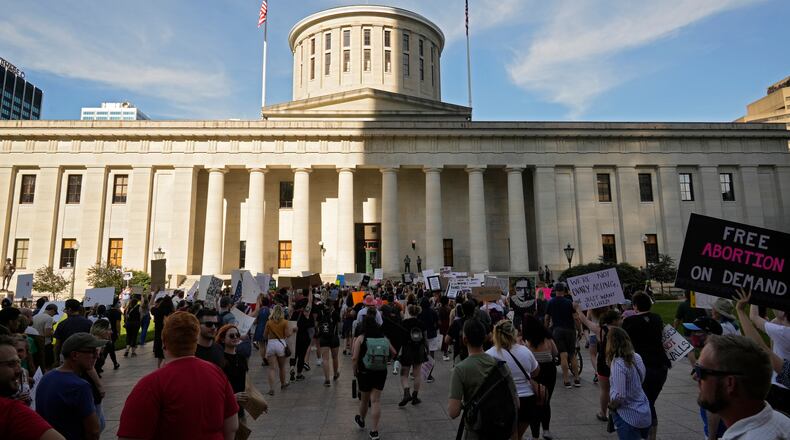A preliminary injunction from the Hamilton County court continues to block Ohio’s “Heartbeat Law,” which would ban abortion after any embryonic cardiac activity can be detected, as early as six weeks from the individual’s last menstrual period. That means abortion up to 22 weeks of pregnancy, Ohio’s previous standard, remains legal while the court case continues.
In September, Planned Parenthood and Ohio abortion clinics filed suit in Hamilton County Common Pleas Court, challenging the Heartbeat Law in full, and seeking a preliminary injunction for now. In October, Hamilton County Judge Christian Jenkins issued that preliminary injunction, temporarily halting the Heartbeat Law pending a trial.
The state, through Ohio Attorney General Dave Yost, appealed the preliminary injunction to Ohio’s First District Court of Appeals. That appellate court raised the question of whether it had the jurisdiction to rule on the injunction, as the injunction was a preliminary one and not a permanent one.
The appellate court’s ruling found that the injunction had been appealed prematurely as the trial court has not yet finished its case.
The appellate court’s ruling would have pushed the case back to the trial court, but Yost then filed an appeal of the appellate court’s decision to the Ohio Supreme Court.
“If allowed to stand, the First District’s ruling will leave the state with no way to protect legislation from egregiously wrong preliminary injunctions,” Yost’s brief says. “Trial courts that issue such injunctions have every incentive to drag out lower-court proceedings, ensuring their orders remain in effect —and that state laws with which they disagree remain unenforceable — for as long as possible.”
This week, ACLU of Ohio responded, asking the Ohio Supreme Court to dismiss the state’s appeal and remand the case back to the trial court. The ACLU of Ohio said following the rules of appellate procedure is important in order to maintain the public’s trust of the judicial system.
“It is precisely in the most controversial cases that adherence to settled procedural rules is most important: only such adherence can ensure public confidence in the legitimacy of the judiciary’s actions,” Hill’s brief says.
Hill’s brief also says the state’s appeals have delayed proceedings from moving forward within the trial court. Hill’s brief says the trial court decided to delay issuing a scheduling order until the resolution of the state’s First District appeal, and the state did not object.
“[T]he First District’s opinion came out on December 16 and, on January 3, 2023, the State then noticed an appeal to this Court. As a result, proceedings in the trial court have not yet moved forward, solely due to the State’s continuing appeals,” Hill’s brief says.
Further, Hill’s brief says even if the Ohio Supreme Court were to accept this appeal, “the lone issue” before the court would be whether the First District court had correctly determined whether it had jurisdiction to the state’s desired appeal of the trial court’s preliminary injunction order.
“The sole issue raised by this appeal — the First District’s determination of its own jurisdiction — is routine, narrow and noncontroversial,” Hill’s brief says. “It raises no substantial constitutional question or question of great public interest.”
About the Author

